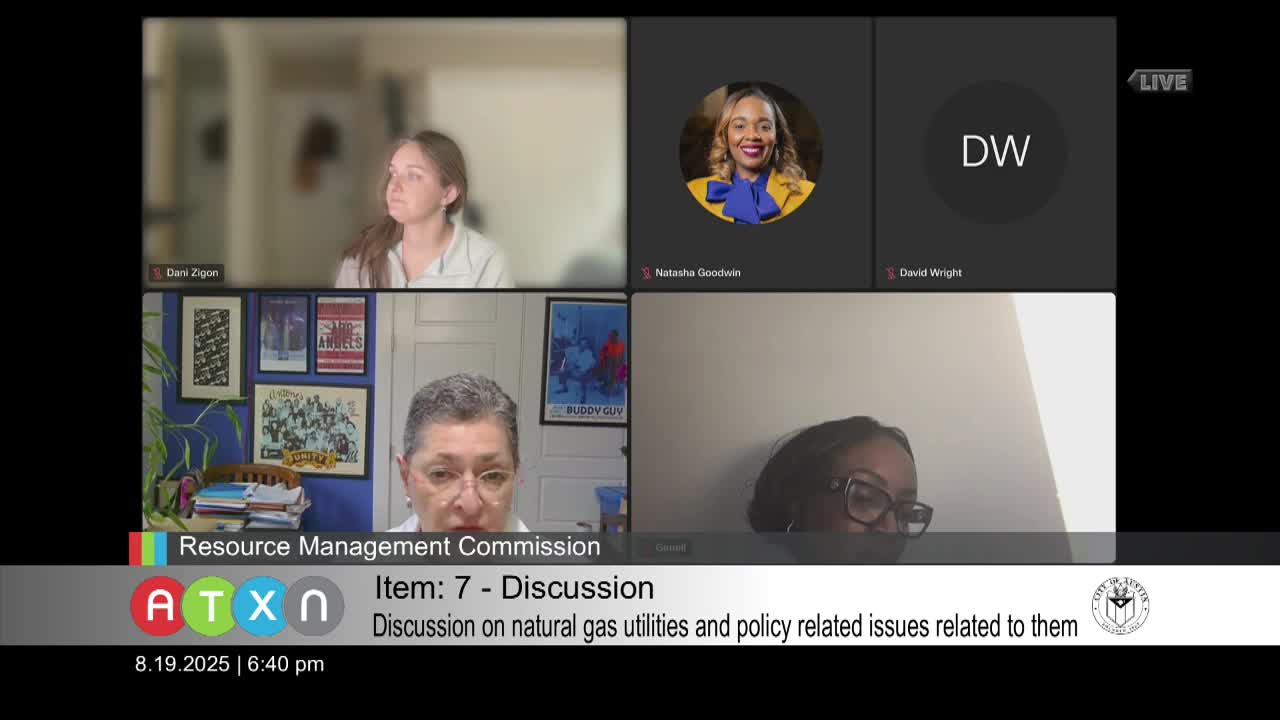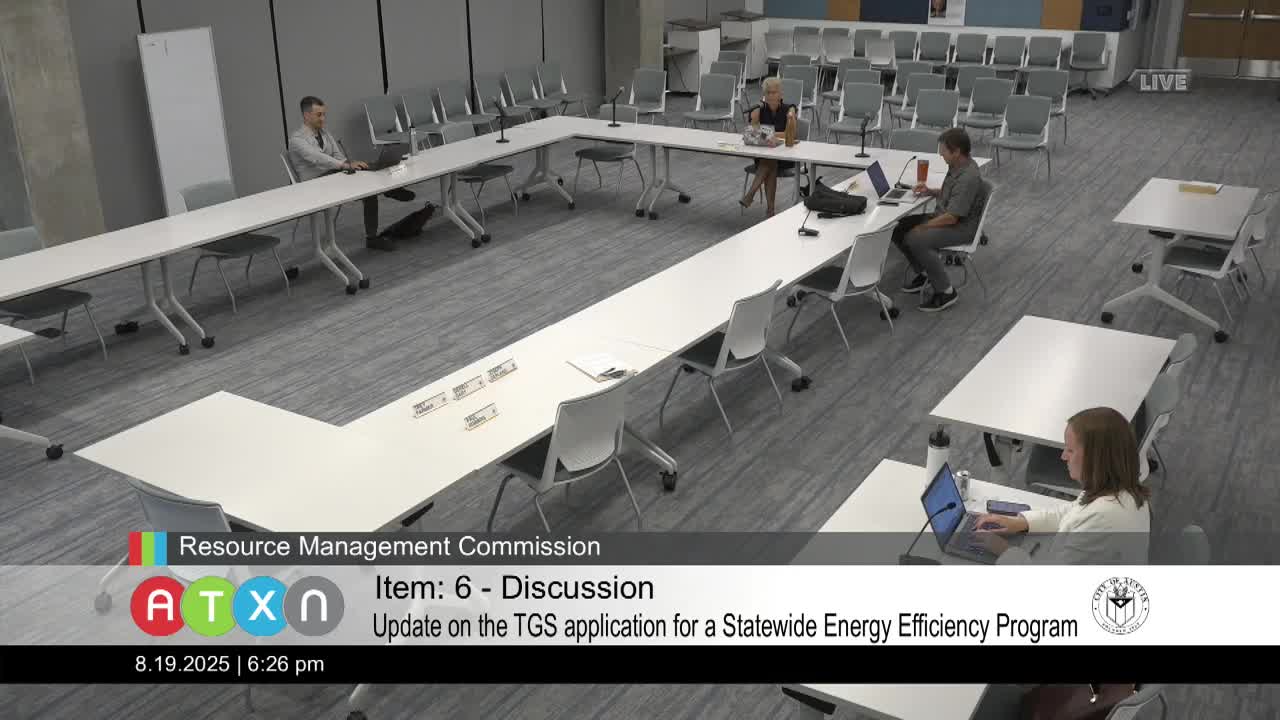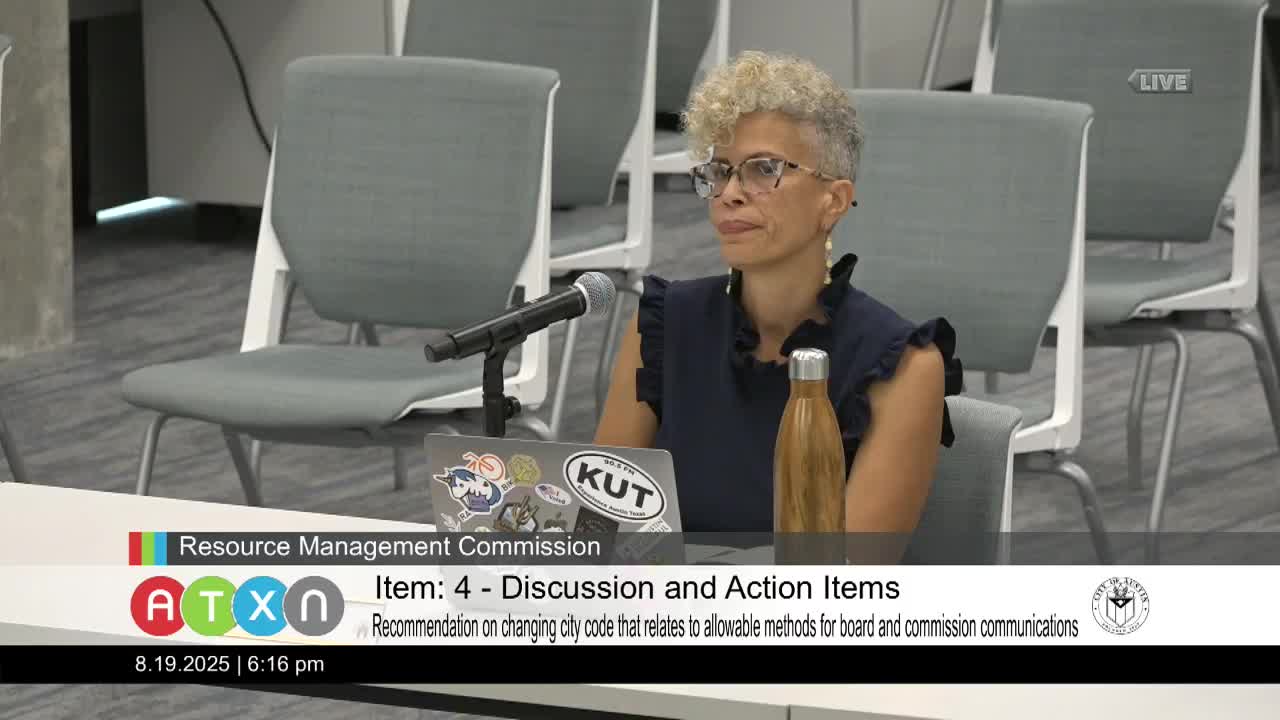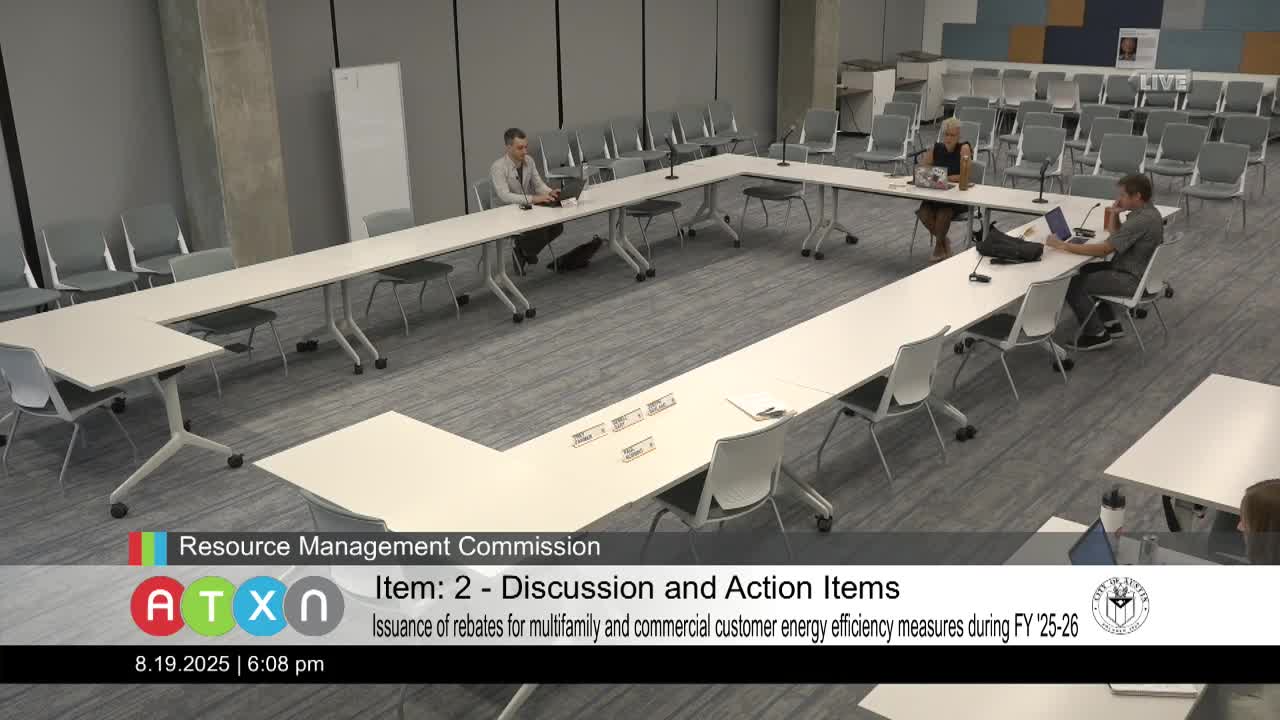Article not found
This article is no longer available. But don't worry—we've gathered other articles that discuss the same topic.

Commission discussion criticizes gas utility conservation rebates, urges city to consider franchise changes and alternate program delivery

Texas Gas Service says Railroad Commission denied its energy-efficiency program application for Central Gulf service area

Commission recommendation to let staff email commissioners’ personal addresses fails 5-1

